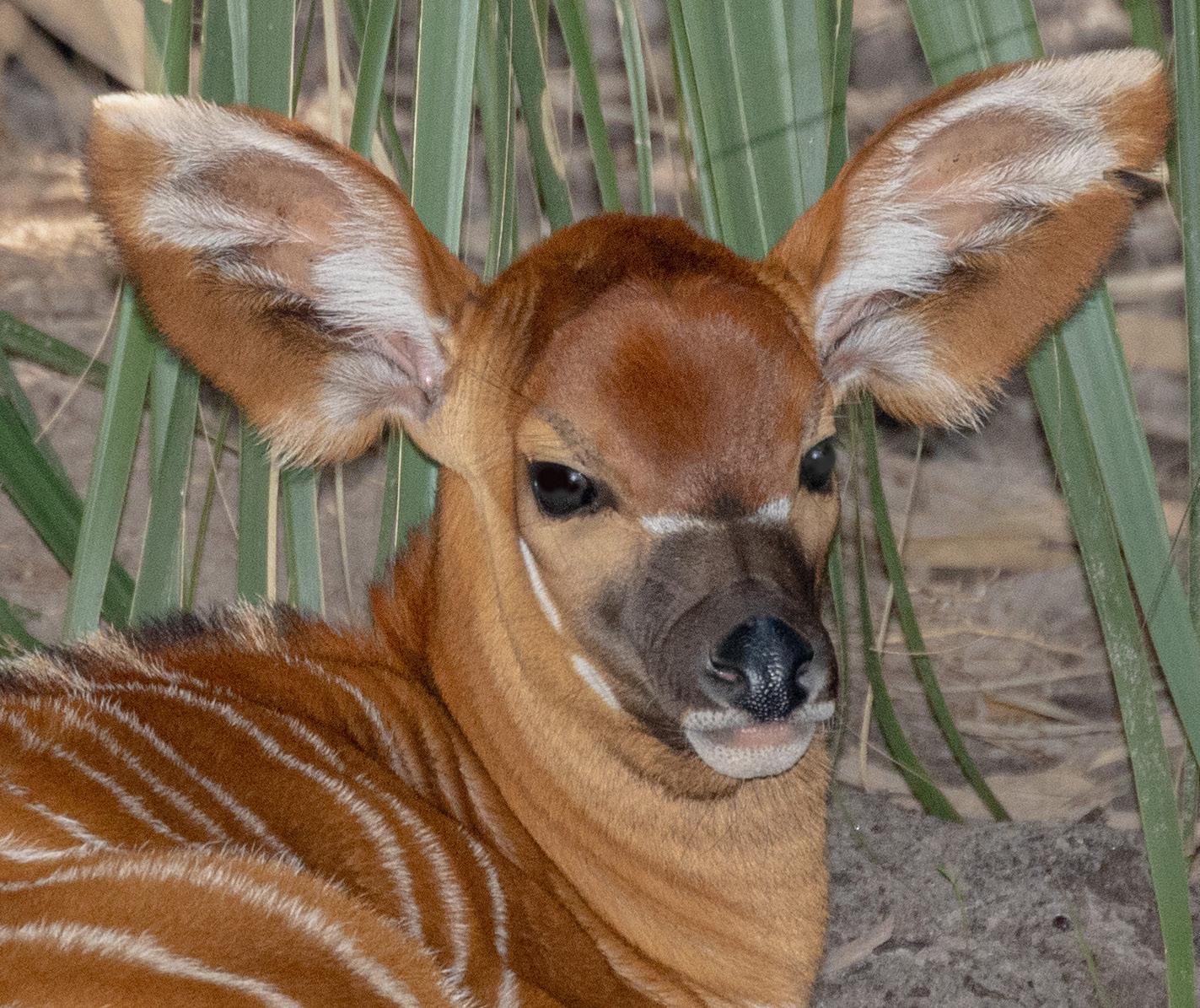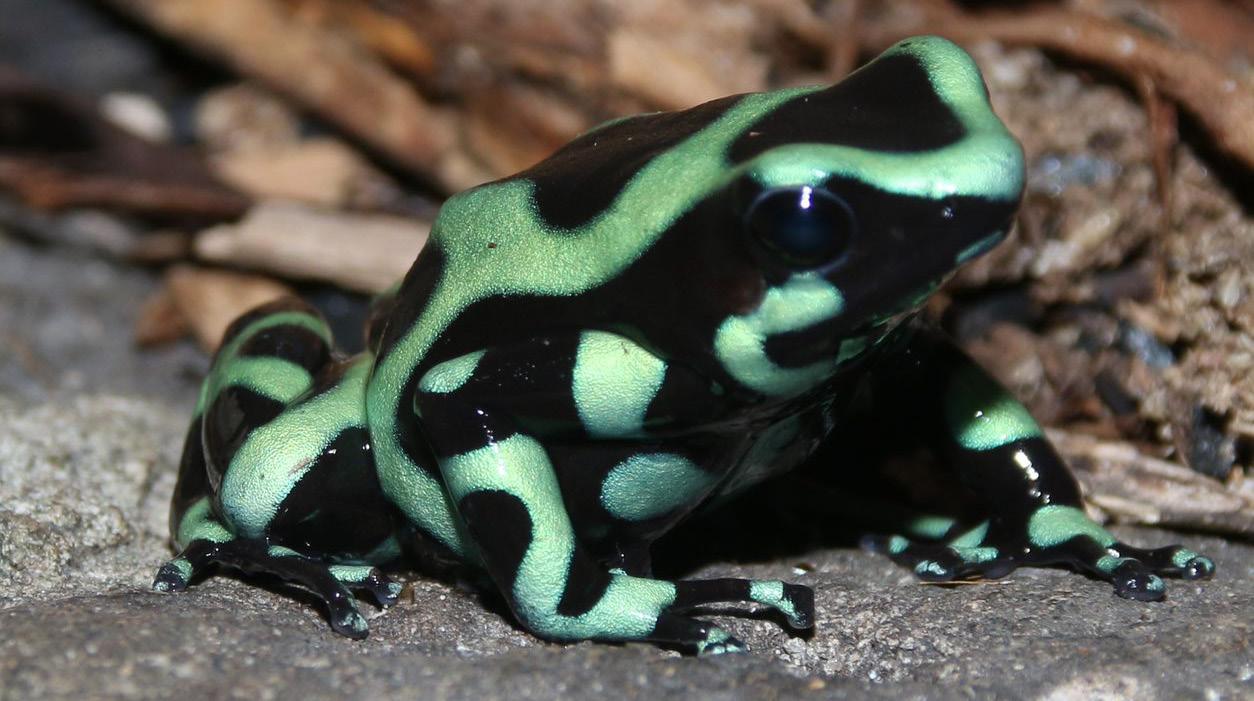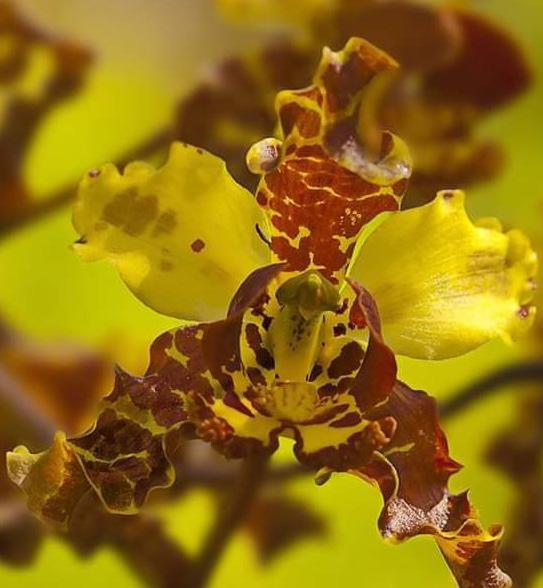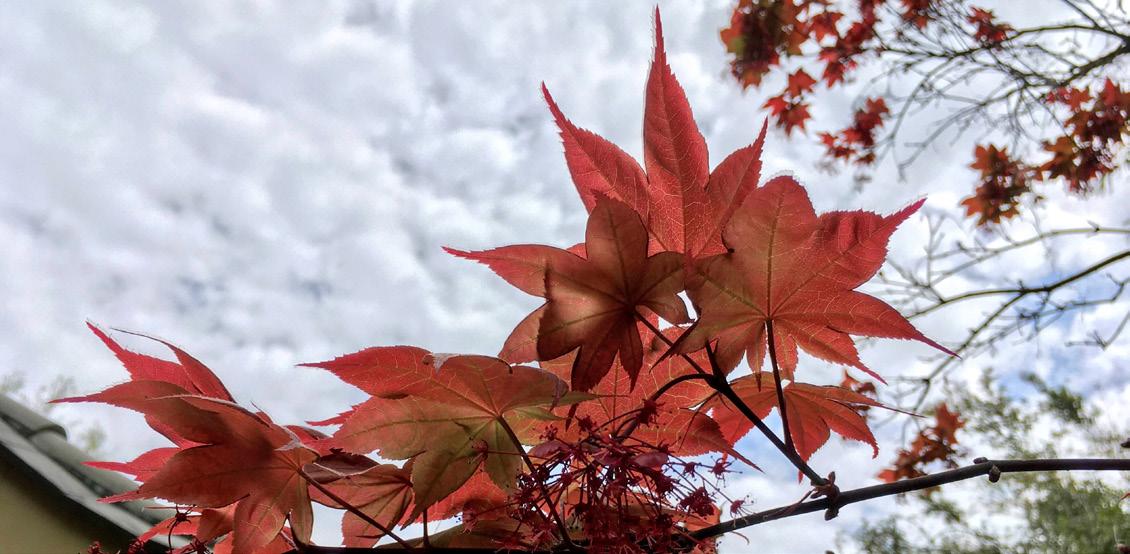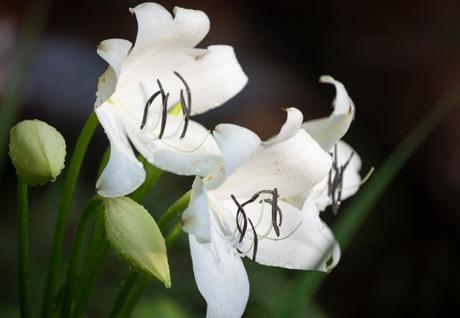GARDENER'S CORNER
Why Do We Plant Trees? By Chris Dailey, Horticulture Manager
Japanes Maple located in the Asian Bamboo Garden
Have you ever planted a tree? These large plants are critical to our world and provide many benefits to us, yet we often overlook their importance. There are many reasons to consider planting a tree. Often, we plant trees for simple or selfish reasons. We like the way a tree looks, for the pretty flowers, uniquely shaped leaves, textured bark, or artistic form or structure. We plant a tree for the fruit that we can eat, the shade that it provides, or to hang a swing on. Though these are great reasons, there is more to understand about the advantages of trees. Most people know the basic relationship between trees and animals. We may know squirrels eat acorns from oak trees and many birds eat berries from holly trees. But did you know insects that feed on trees are an important part of many bird diets, especially baby birds? Where trees are missing, we notice bird diversity declines dramatically. In countless ways, trees provide habitat for wildlife: a location and parts for building nests, a structure for cavity dwelling, a perch for roosting, an escape from predators—the list goes on. Birds, mammals, reptiles, fish, and insects all rely on trees for these habitat opportunities. Additionally, trees planted in urban areas help to connect natural areas, giving wildlife more space and opportunities to thrive. 8
WILD MAGAZINE • SPRING 2021 • JACKSONVILLE ZOO AND GARDENS
Loquat (Eriobotrya japonica) located in Main Camp and Land of the Tiger.
PHOTOS: CHRIS DAILEY



